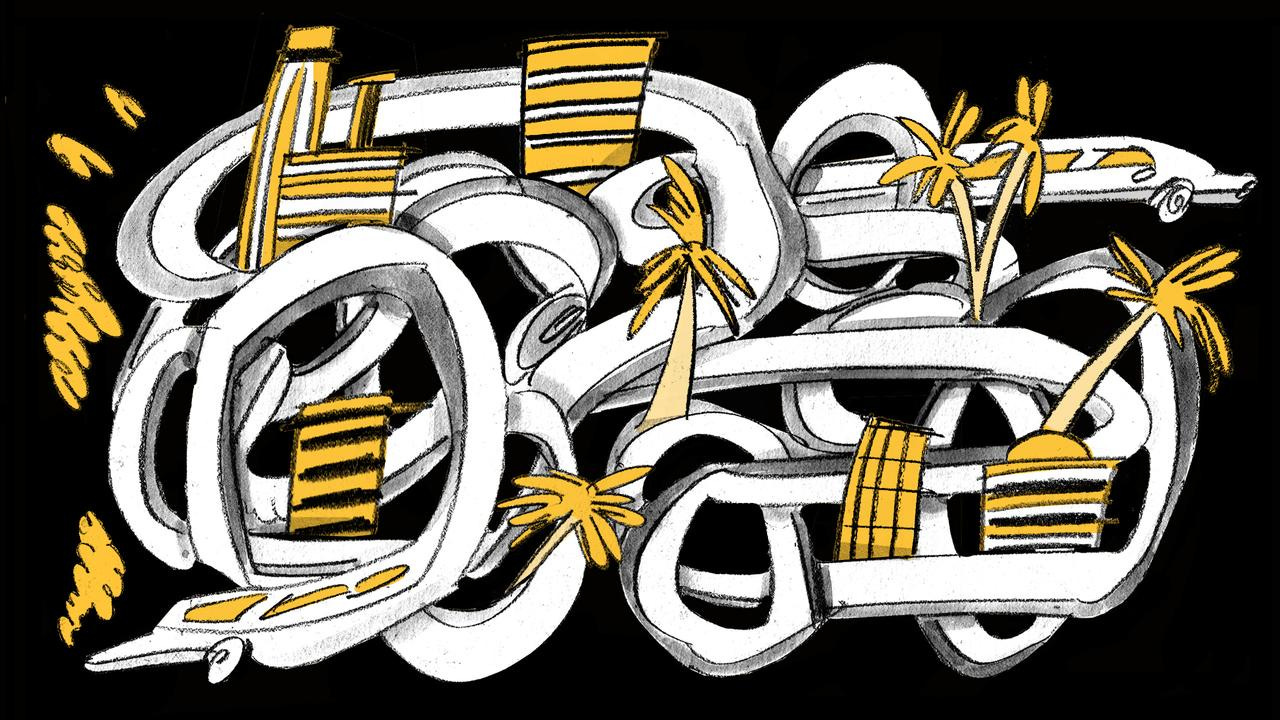In This Family, the Automobile Represented Both Extreme Chaos and Ultimate Freedom
Cars had an outsized impact on Nancy A. Nichols’s life growing up: They liberated her and her mom, forever changed her father and briefly reunited her family—these are the tales that defined her.
This piece is part of a series called True Story Classics, a special collaboration from Narratively and our partners at Creative Nonfiction in which we’re republishing classic pieces from the True Story archive. True Story was an endeavor published by the editors of Creative Nonfiction magazine showcasing one exceptional longform essay each month in a unique pocket-size format. This story was originally published as “Memoirs of a Used Car Salesman’s Daughter” in True Story’s 24th issue.
Back in the 1920s, my father’s brother, Donny, was killed at the age of seven in an accident of some kind. Exactly what happened has never been clear.
My father told many versions of this story. He used to say that an older boy had been playing with his little brother, and there was a rope around Donny’s waist. Donny was playing the part of the pony, and the older boy was riding him. In one version of the story, the older boy pulled the rope, and the little boy crashed into the curb and died almost instantaneously. In another version, Donny broke free and ran into the street, where he was hit and killed. Sometimes the older boy was my father; sometimes it wasn’t.
Sometimes it was an army truck that hit Donny, or maybe an ice truck. My father hit a ball into the street, and Donny ran after it. He told Donny not to go into the street, but Donny did anyhow. Or maybe he didn’t say anything; maybe he just stood staring. The truck driver tried to brake but couldn’t. Or he didn’t brake at all.
Both blamed and punished at the time for his brother’s death, my father began to lie as a child—perhaps as an understandable response to a terrible tragedy or maybe to cover up his own role in his brother’s death. Eventually, lying became a habit. My father lied about everything, consistently, reflexively, whether his lies served a purpose or not. He lied about which grocery store he went to and whether the car was insured or whether there was oil in the burner. Eventually, my father would become a car salesman, and lying would become his business.
During the 1960s and ’70s, he sold used cars on a small half-acre lot in our hometown of Waukegan, Illinois—just south of the Wisconsin border. I can picture him alone in the small shack at the back of the lot, his feet perched on an old aluminum desk. Cigarette hanging from his mouth, he was slow to get up but a fast-talker once he reached you.
Sometimes, he worked in the dealer’s new-car showroom on the other side of town. There, he sold Chryslers and Dodges under bright fluorescent lights that reflected off the showroom cars like a disco ball turned upside down.
In 1970, when I was in the sixth grade, he sold more Dodge Darts than any other man in the state of Illinois. The company gave him a small diamond pin to mark this achievement, and he wore it religiously. The automobile industry had embraced the “new and improved” sales strategy, and each year’s version of the Dart was slightly more alluring than the last. The cars all looked pretty much the same to me—the Dart was a boxy economy car that I remember in mostly pale pastel colors with shiny vinyl upholstery—but my father excelled at extolling the small virtues and changes in each new model.
He dressed the part of a car salesman as well as he played it. At nearly six foot four, he was unmistakable in his lime-green leisure suit and white belt and shoes. His slicked-back silver hair was a perfect match for black shirts paired with white ties and checkerboard sports jackets.
Though he mainly sold used cars, he would often drive new ones from the showroom floor, tooling around in the latest models, trying to gin up interest from the factory workers in town. This meant we had a new car every week. We rode around in one stylish model after another, the price tag stuck on the rear window, small paper squares beneath our feet to protect the carpet, that sweet new car smell burning our nostrils. Each new car filled us with hope and aspiration. Our bank account may have been empty, but the gas tank was always full.


